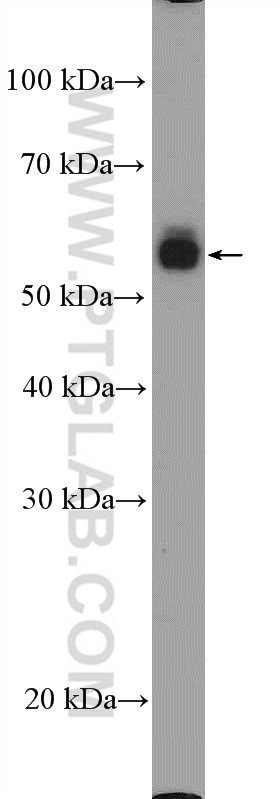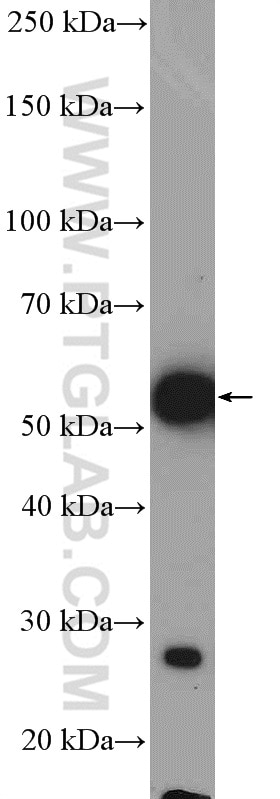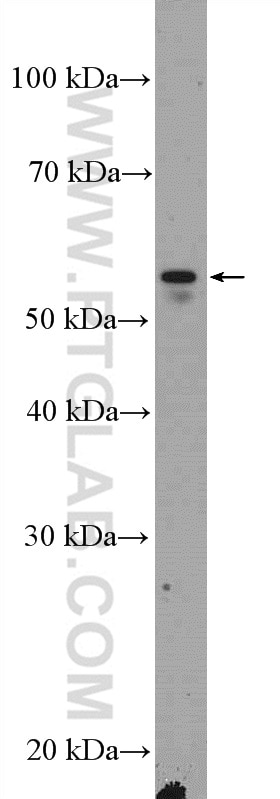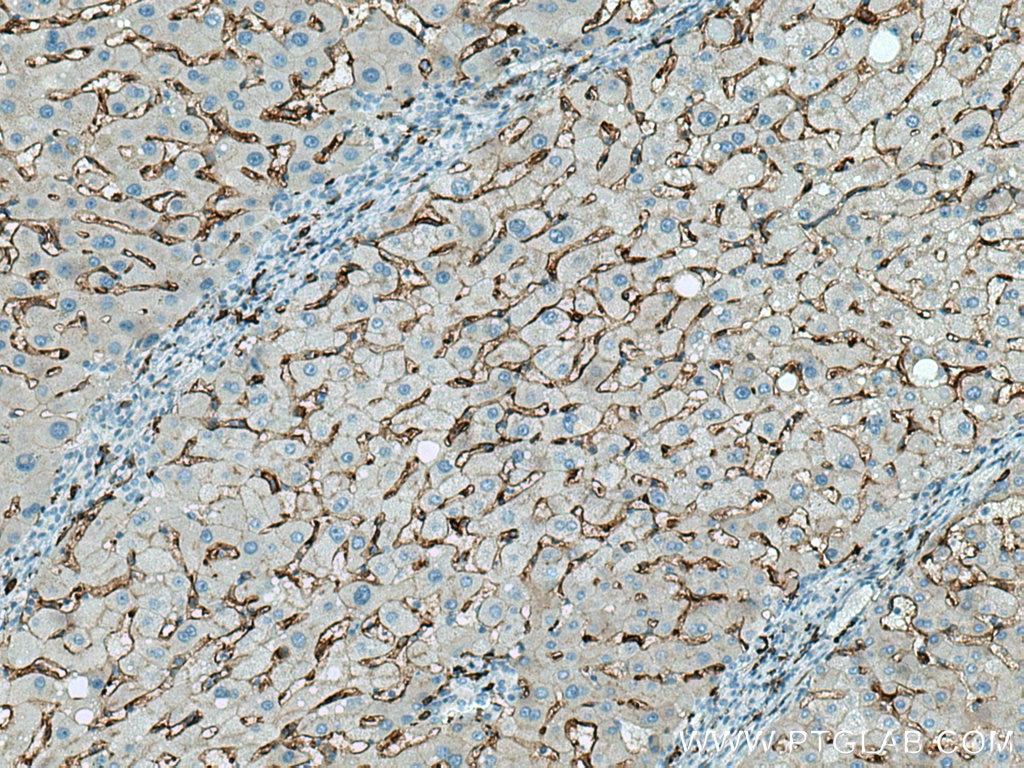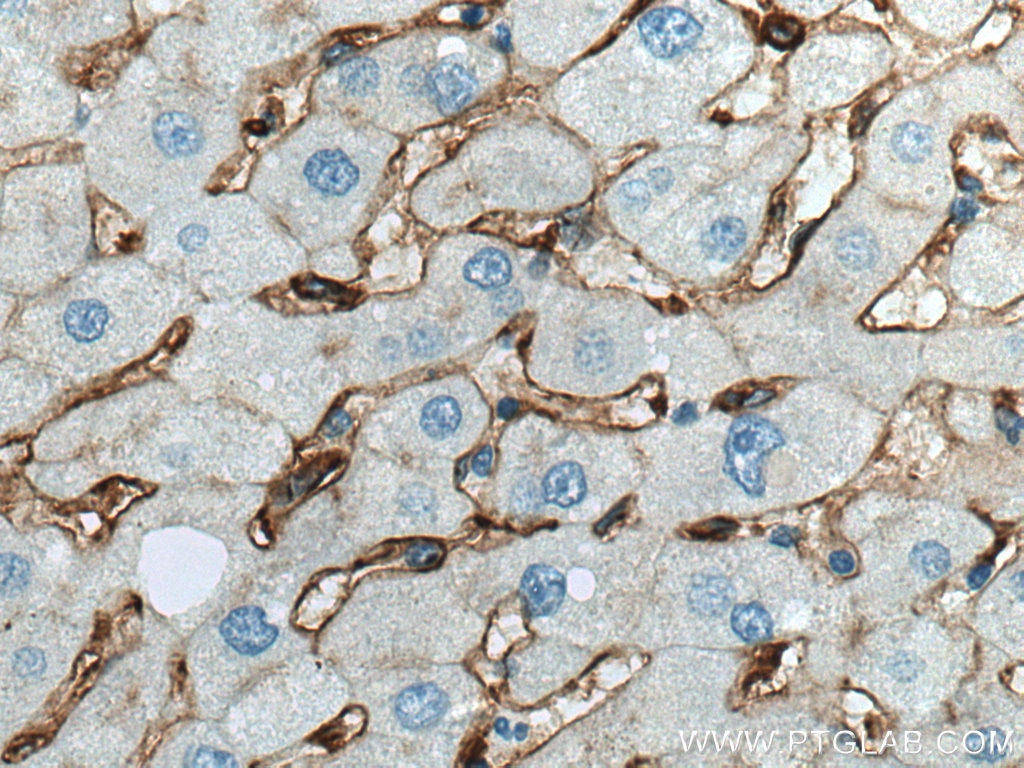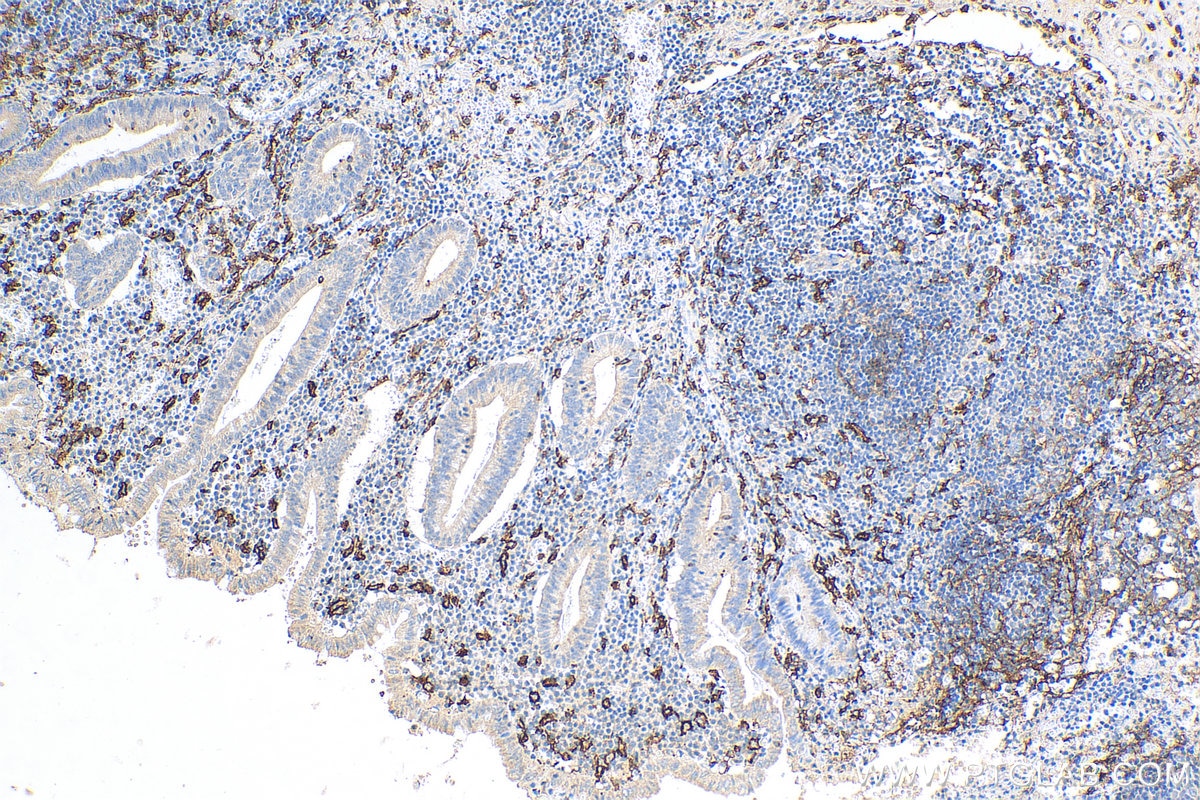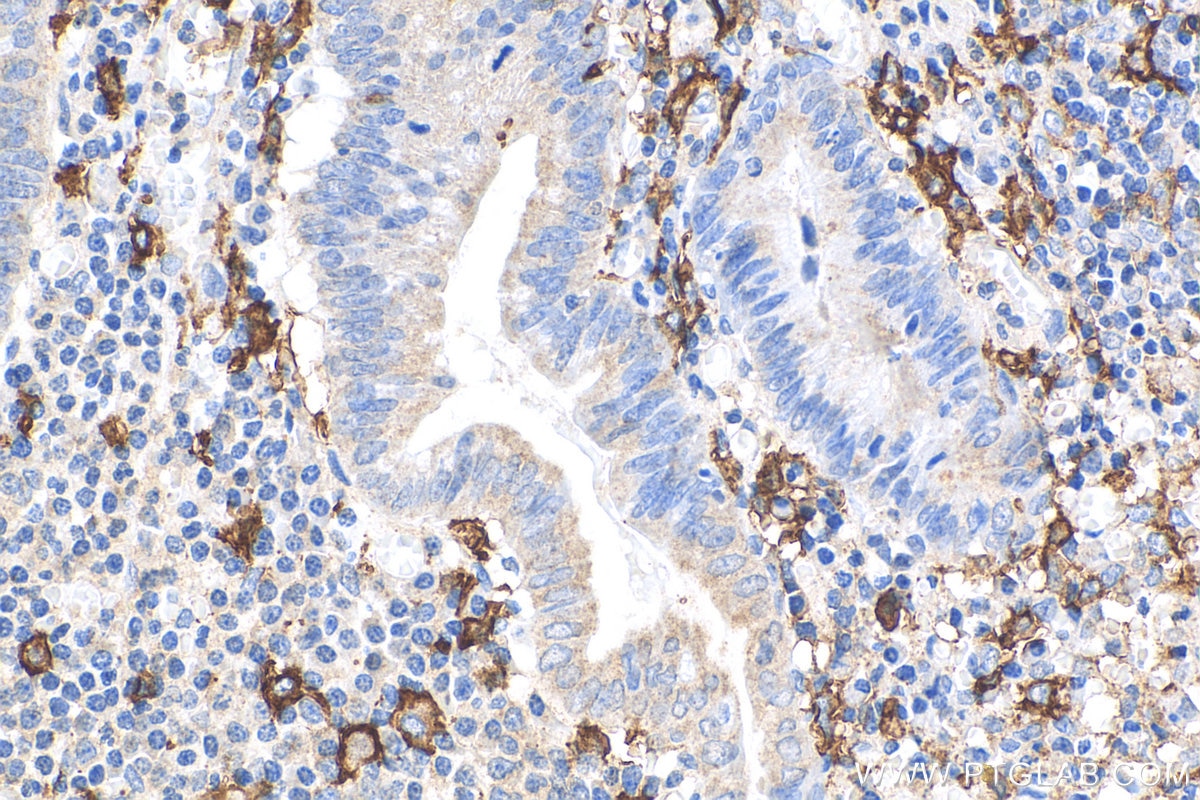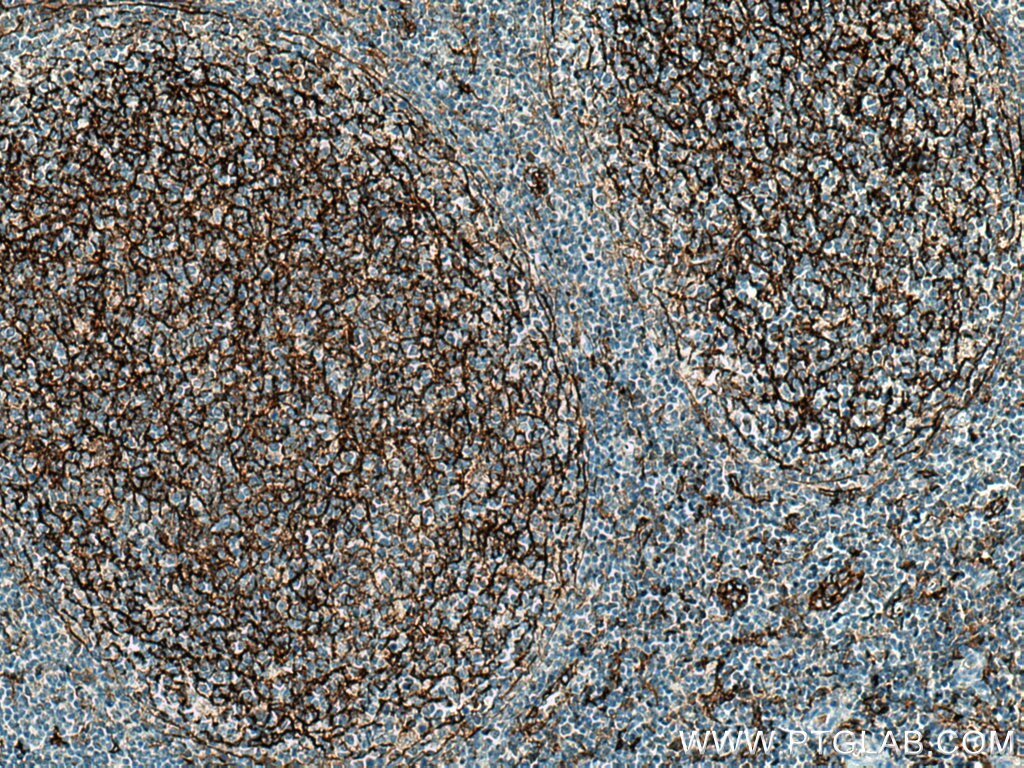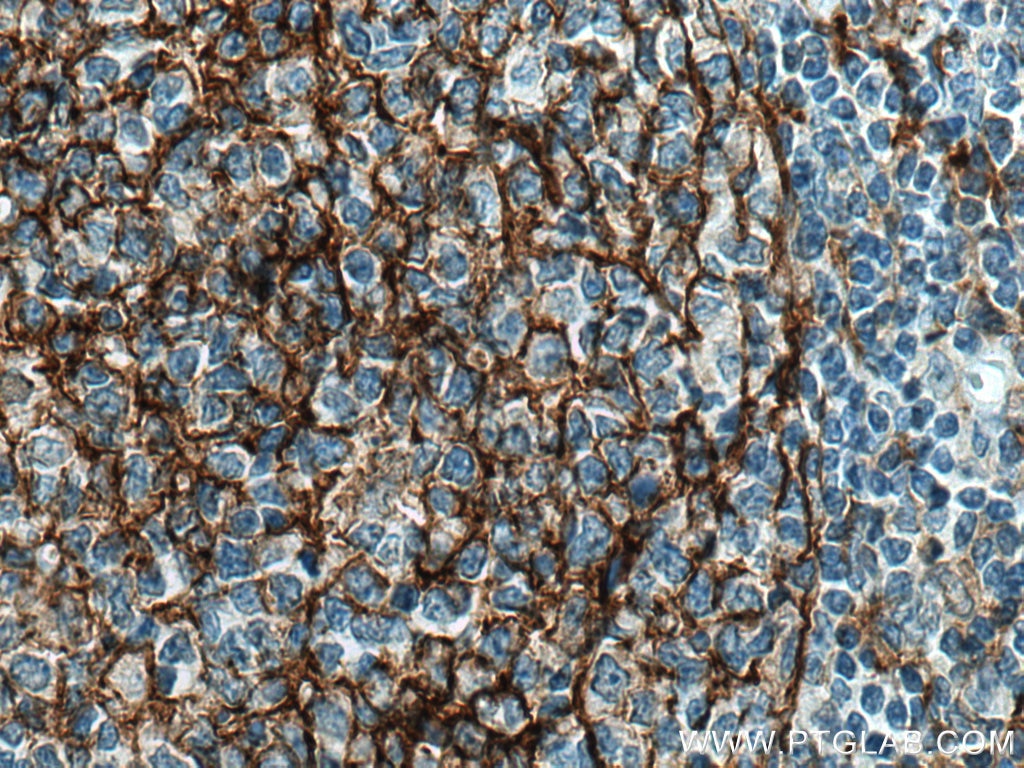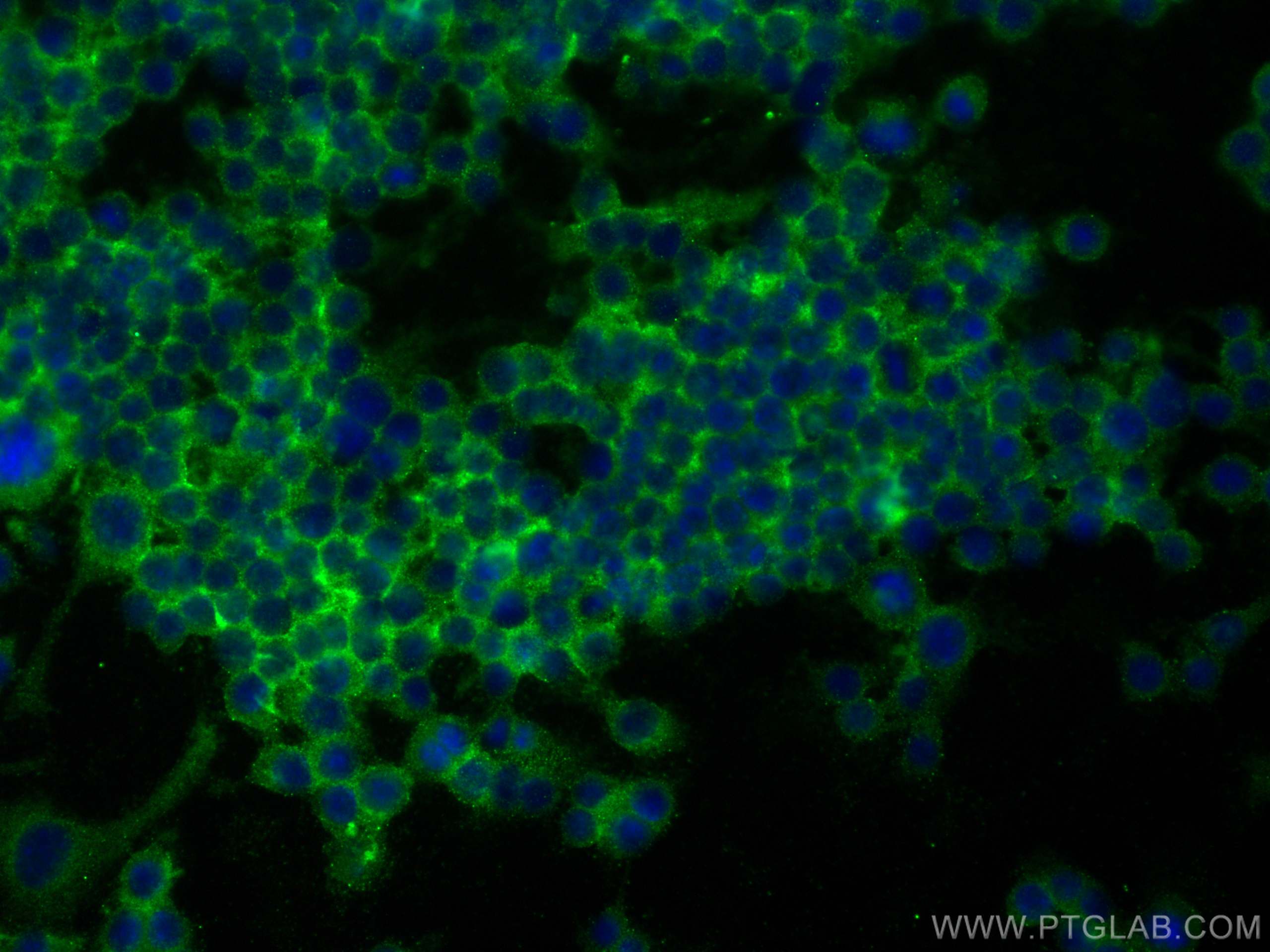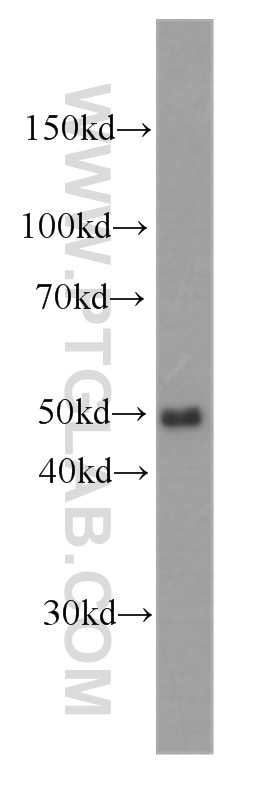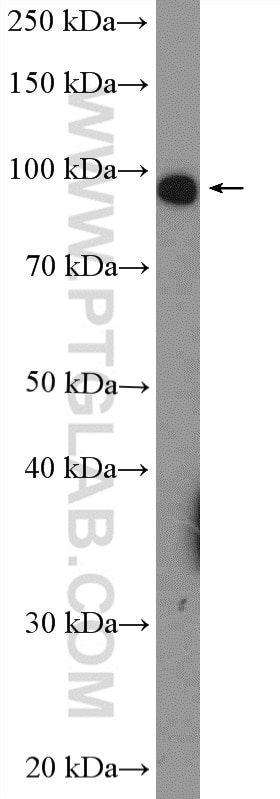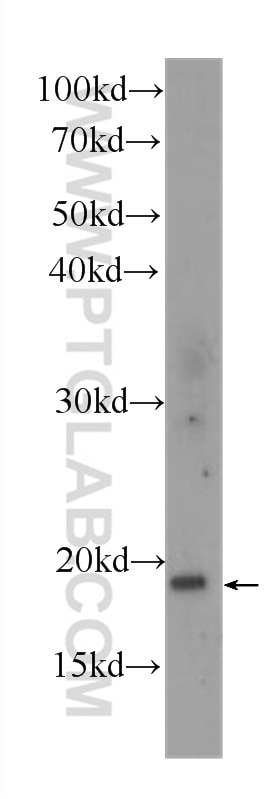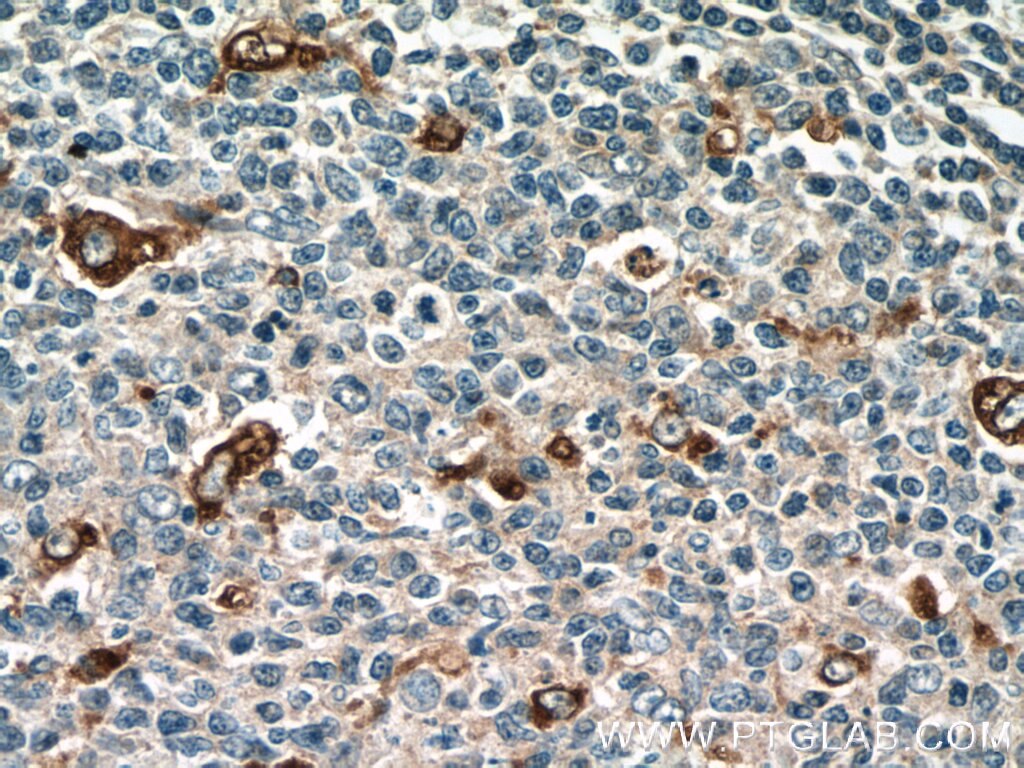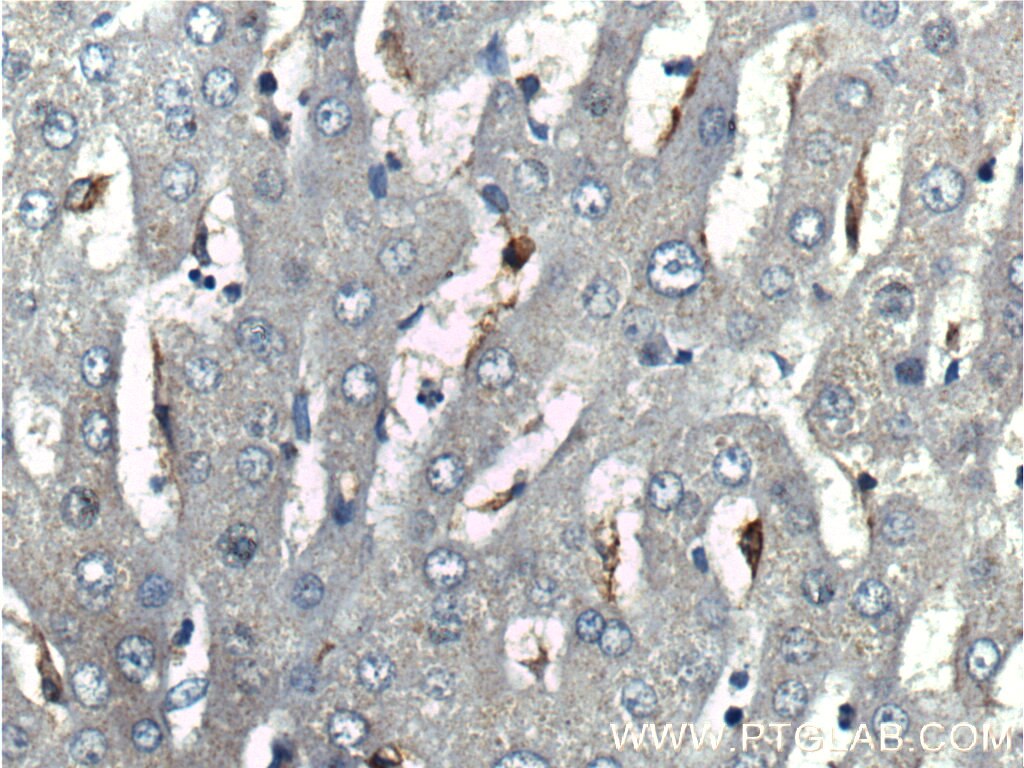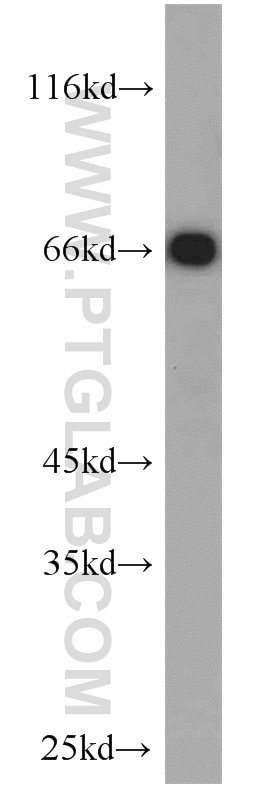Anticorps Polyclonal de lapin anti-CD14
CD14 Polyclonal Antibody for WB, IHC, IF/ICC, ELISA
Hôte / Isotype
Lapin / IgG
Réactivité testée
Humain, souris et plus (2)
Applications
WB, IHC, IF/ICC, ELISA
Conjugaison
Non conjugué
N° de cat : 17000-1-AP
Synonymes
Galerie de données de validation
Applications testées
| Résultats positifs en WB | cellules HL-60, cellules RAW 264.7, tissu splénique humain |
| Résultats positifs en IHC | tissu de cirrhose hépatique humain, tissu d'amygdalite humain, tissu d'appendicite humain il est suggéré de démasquer l'antigène avec un tampon de TE buffer pH 9.0; (*) À défaut, 'le démasquage de l'antigène peut être 'effectué avec un tampon citrate pH 6,0. |
| Résultats positifs en IF/ICC | cellules RAW 264.7, |
Dilution recommandée
| Application | Dilution |
|---|---|
| Western Blot (WB) | WB : 1:500-1:1000 |
| Immunohistochimie (IHC) | IHC : 1:1000-1:4000 |
| Immunofluorescence (IF)/ICC | IF/ICC : 1:50-1:500 |
| It is recommended that this reagent should be titrated in each testing system to obtain optimal results. | |
| Sample-dependent, check data in validation data gallery | |
Applications publiées
| WB | See 14 publications below |
| IHC | See 18 publications below |
| IF | See 26 publications below |
| FC | See 5 publications below |
Informations sur le produit
17000-1-AP cible CD14 dans les applications de WB, IHC, IF/ICC, ELISA et montre une réactivité avec des échantillons Humain, souris
| Réactivité | Humain, souris |
| Réactivité citée | rat, Humain, porc, souris |
| Hôte / Isotype | Lapin / IgG |
| Clonalité | Polyclonal |
| Type | Anticorps |
| Immunogène | CD14 Protéine recombinante Ag10693 |
| Nom complet | CD14 molecule |
| Masse moléculaire calculée | 375 aa, 40 kDa |
| Poids moléculaire observé | 50-55 kDa |
| Numéro d’acquisition GenBank | BC010507 |
| Symbole du gène | CD14 |
| Identification du gène (NCBI) | 929 |
| Conjugaison | Non conjugué |
| Forme | Liquide |
| Méthode de purification | Purification par affinité contre l'antigène |
| Tampon de stockage | PBS avec azoture de sodium à 0,02 % et glycérol à 50 % pH 7,3 |
| Conditions de stockage | Stocker à -20°C. Stable pendant un an après l'expédition. L'aliquotage n'est pas nécessaire pour le stockage à -20oC Les 20ul contiennent 0,1% de BSA. |
Informations générales
CD14 is a 50-55 kDa glycosylphosphatidylinositol-anchored glycoprotein preferentially expressed on monocytes and macrophages, and at lower levels on granulocytes (PMID: 3385210; 2462937; 7685797). CD14 can also exist as a soluble protein. CD14 acts as a co-receptor for bacterial liposaccharides (LPS) (PMID: 1698311). It plays a major role in the inflammatory response of monocytes to LPS.
Protocole
| Product Specific Protocols | |
|---|---|
| WB protocol for CD14 antibody 17000-1-AP | Download protocol |
| IHC protocol for CD14 antibody 17000-1-AP | Download protocol |
| IF protocol for CD14 antibody 17000-1-AP | Download protocol |
| Standard Protocols | |
|---|---|
| Click here to view our Standard Protocols |
Publications
| Species | Application | Title |
|---|---|---|
Sci Immunol Clostridium septicum α-toxin activates the NLRP3 inflammasome by engaging GPI-anchored proteins. | ||
Nat Commun HIF1α inhibition facilitates Leflunomide-AHR-CRP signaling to attenuate bone erosion in CRP-aberrant rheumatoid arthritis. | ||
EBioMedicine Patient-derived melanoma organoid models facilitate the assessment of immunotherapies | ||
Biomaterials Construction of functional magnetic scaffold with temperature control switch for long-distance vascular injury | ||
Biomaterials Cerebro- and renoprotective activities through platelet-derived biomaterials against cerebrorenal syndrome in rat model. |
Avis
The reviews below have been submitted by verified Proteintech customers who received an incentive forproviding their feedback.
FH Emma (Verified Customer) (11-29-2021) | Works well by IF on FFPE tissue @ 1:200 with a Tris-EDTA antigen retrieval.
|
